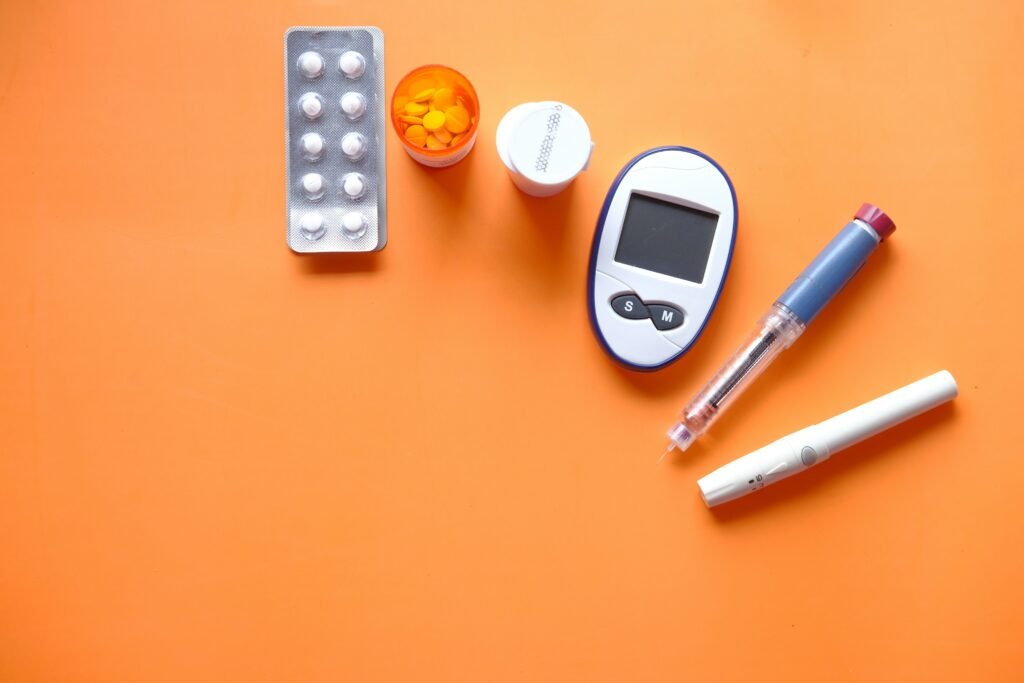Diabetic nephropathy is a serious complication that affects the kidneys in individuals with diabetes, particularly those with long-standing Type 1 and Type 2 Diabetes. It is a leading cause of kidney failure and can significantly impact quality of life. Understanding the symptoms, risk factors, and management strategies for diabetic nephropathy is crucial for preventing its progression and maintaining kidney health.
Diabetic Nephropathy Symptoms: What It Is and How It Develops
Diabetic nephropathy, also known as diabetic kidney disease, is a type of kidney damage that occurs in people with diabetes. The condition develops when high blood sugar levels from Type 1 and Type 2 Diabetes cause damage to the small blood vessels in the kidneys, impairing their ability to filter waste and excess fluids from the blood. Over time, this damage can lead to kidney failure, necessitating dialysis or a kidney transplant.
Common Symptoms
Diabetic nephropathy often progresses silently in its early stages, making it essential for individuals with diabetes to undergo regular screening for kidney function. As the condition advances, several symptoms may become apparent:
- Persistent Proteinuria (Protein in Urine):
- One of the earliest signs of diabetic nephropathy is the presence of protein in the urine, known as proteinuria. This occurs when the damaged kidneys begin to leak protein from the blood into the urine. Persistent proteinuria is a critical marker of kidney damage and warrants immediate medical attention.
- Swelling (Edema), Especially in the Ankles and Feet:
- As kidney function declines, the body’s ability to eliminate excess fluid is compromised, leading to swelling or edema. This is often most noticeable in the ankles, feet, and sometimes the hands and face. Edema can cause discomfort and mobility issues.
- Increasing Blood Pressure:
- High blood pressure is both a cause and a consequence of diabetic nephropathy. As kidney damage progresses, the kidneys release hormones that can elevate blood pressure, creating a vicious cycle that further harms the kidneys.
- Elevated Serum Creatinine Levels:
- Serum creatinine is a waste product produced by muscle metabolism, normally filtered out by the kidneys. Elevated levels of creatinine in the blood indicate impaired kidney function and are a key diagnostic marker for diabetic nephropathy.
- Fatigue and Weakness:
- Reduced kidney function can lead to a buildup of toxins and waste products in the blood, causing symptoms like fatigue, weakness, and a general feeling of being unwell. Anemia, a common complication of kidney disease, can also contribute to these symptoms.
Progression of Symptoms
As diabetic nephropathy progresses, symptoms may worsen and lead to more severe complications:
- Advanced Proteinuria: The amount of protein in the urine increases, signaling further kidney damage.
- Severe Edema: Swelling becomes more pronounced and widespread, affecting the legs, abdomen, and other parts of the body.
- Hypertension: Blood pressure continues to rise, increasing the risk of cardiovascular events such as heart attacks and strokes.
- Worsening Kidney Function: Serum creatinine levels continue to rise, and other waste products accumulate in the blood, leading to uremia. This can cause symptoms such as nausea, vomiting, itching, and mental confusion.
- End-Stage Renal Disease (ESRD): In advanced stages, kidney function deteriorates to the point where dialysis or a kidney transplant becomes necessary to sustain life.
Risk Factors
Several factors increase the risk of developing diabetic nephropathy, particularly in individuals with Type 1 and Type 2 Diabetes:
- Duration of Diabetes: The longer a person has diabetes, the greater their risk of developing kidney damage.
- Poor Blood Sugar Control: Consistently high blood sugar levels accelerate kidney damage.
- High Blood Pressure: Hypertension is a significant risk factor for diabetic nephropathy.
- Genetic Factors: A family history of kidney disease can increase the risk.
- Smoking: Smoking can exacerbate kidney damage and accelerate the progression of nephropathy.
- Obesity: Excess body weight is associated with an increased risk of kidney disease.
- High Cholesterol Levels: Elevated cholesterol can contribute to kidney damage.
Prevention and Management
Preventing diabetic nephropathy or managing its symptoms if diagnosed involves a combination of lifestyle changes and medical treatments:
- Tight Blood Sugar Control:
- Maintaining blood sugar levels within the target range is crucial for preventing kidney damage. Regular monitoring and adhering to a diabetes management plan can help achieve this.
- Blood Pressure Management:
- Keeping blood pressure under control is vital. Medications such as ACE inhibitors or ARBs are often prescribed to protect the kidneys and lower blood pressure.
- Healthy Diet:
- A balanced diet low in sodium, saturated fats, and processed foods can help manage blood pressure and blood sugar levels. Consuming a diet rich in fruits, vegetables, whole grains, and lean proteins is beneficial.
- Regular Exercise:
- Physical activity helps control blood sugar levels, lower blood pressure, and maintain a healthy weight, all of which are important for kidney health care.
- Medications:
- In addition to blood pressure medications, other drugs such as statins (to lower cholesterol) and medications to manage blood sugar may be prescribed.
- Smoking Cessation:
- Quitting smoking can significantly reduce the risk of kidney damage and improve overall health.
- Regular Monitoring:
- Routine screening for kidney function, including urine tests for protein and blood tests for creatinine, is essential for early detection and management of diabetic nephropathy.
- Understanding Mindfulness:
- Incorporating mindfulness practices into daily life can help manage stress and improve overall well-being. Stress management is important for maintaining healthy blood pressure and blood sugar levels.
Conclusion
Diabetic nephropathy is a serious complication of Type 1 and Type 2 Diabetes that requires vigilant management and proactive measures to prevent its progression. By understanding the symptoms, risk factors, and prevention strategies, individuals with diabetes can take steps to protect their kidney health. Early detection and intervention are key to minimizing the impact of diabetic nephropathy and maintaining a good quality of life. If you have diabetes, regular check-ups with your healthcare provider and adherence to your treatment plan are essential for preventing and managing this condition.



